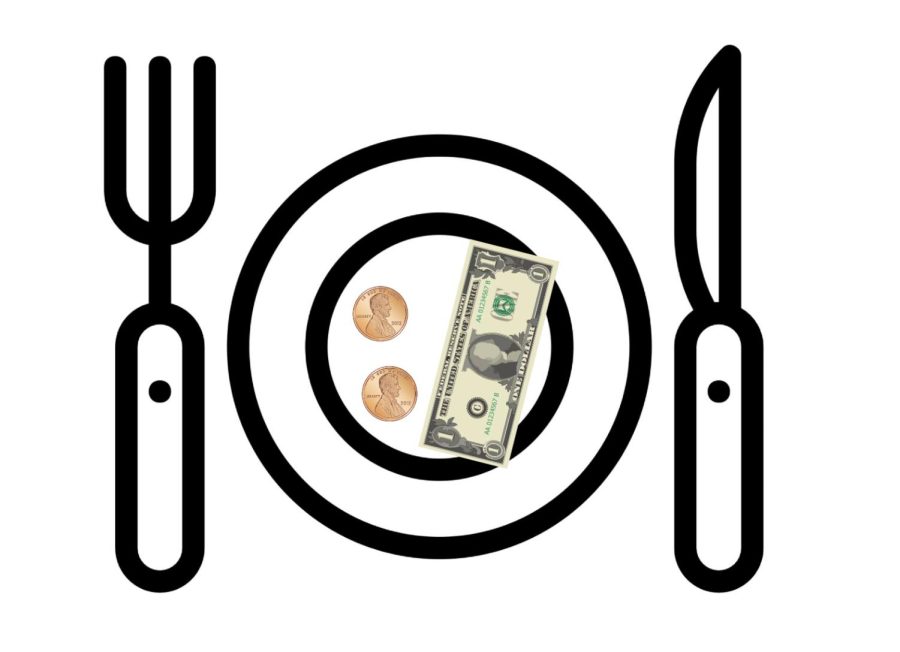Leave Food Delivery in the Past
The overreliance on food delivery services during the pandemic has come with an unseen cost.
April 30, 2022
With the likes of Uber Eats, DoorDash, and Grubhub everywhere, food delivery services have become an increasingly convenient way to order a meal right to your door. The premise is simple: open the app, place your order, and eagerly wait for the delivery. However, the reality beneath the enticing convenience and local restaurant partnerships isn’t as savory as it seems. Despite their mainstream popularity, these services serve as the epitome of corporate greed — shamelessly taking advantage of restaurants, drivers, and you.
In the midst of the COVID-19 pandemic, the popularity of food delivery services skyrocketed, allowing a safe and convenient way to purchase food. With the ban on indoor dining, struggling local restaurants were forced to resort to third-party providers to stay afloat. However, these services took an enormous commission from the already floundering businesses. In 2020, UberEats charged a 30% commission with each order—excluding the fee to acquire the service. By cutting into the already thin margins of small restaurants, food delivery services leave restaurants no choice but to drastically increase their prices and jeopardize consumer loyalty at the expense of convenience. And with the 80,000 restaurants that have closed during the pandemic, simply opting out of these services is not a viable option.
Despite the substantial fees food delivery services charge restaurants, delivery drivers remain neglected from proper wages. Since the wages of the drivers are largely based on tips, the standard hourly pay is a measly $5 per hour. Even then, certain companies have implemented methods in order to incentivize drivers with false tips with a method known as “tip baiting.” Using this method, customers can enter a large tip prior to the delivery and remove the amount entirely once the delivery has been made. Drivers are more likely to accept these orders due to the large tips but ultimately waste time and earn well below minimum wage as a result of this feature. Furthermore, Doordash states that guaranteed wages are only paid during “active time”— the time between accepting an order and delivering it. Despite the flexibility that food delivery companies offer their drivers, loopholes are intentionally created to cut costs while depriving workers of just wages.
In spite of the corruption behind the scenes, the ultimate purpose of food delivery services is to serve customers through fair and transparent methods, right? Unfortunately, these services offer the luxury of convenience at a steep price — a near 91% markup. For reference, that is equivalent to buying a $10 meal directly from a restaurant and ordering that same meal from Uber Eats for nearly $20. These companies use underhanded tactics to encourage consumers to spend more. Delivery services charge “small order fees” on orders that fail to reach a minimum subtotal — usually around $8 to $10. These fees usually equate to 25% of the entire order itself. On top of that, menu prices are often higher on the apps than on the restaurant menu. These strategies are blatantly designed to profit by deceiving consumers.
Companies such as Uber Eats claim that the excess fees are designed to improve standards for drivers and restaurants. However, with enormous commissions from restaurants, meager wages for drivers, and inflated prices for customers, where is this profit really going? Well, with the net worth of Uber Eats, DoorDash, and Grubhub all over $4 billion, it is not hard to overlook the underlying motivation of corporate greed. It is time to see past the convenience of these apps and recognize the harm they cause to small restaurants, workers, and you. It is time to leave food delivery services in the past.


